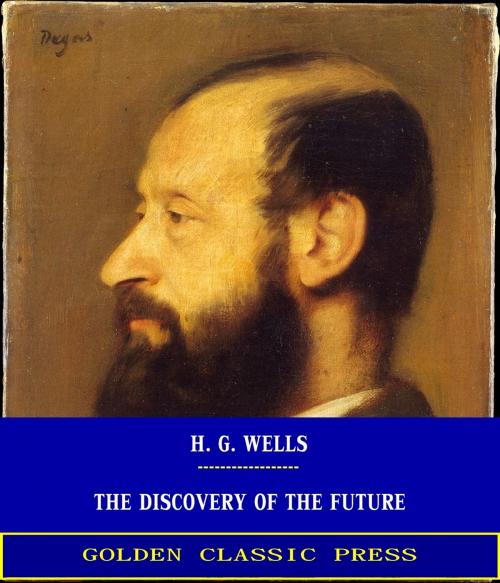The Discovery of the Future
Science Fiction & Fantasy, Fantasy, Contemporary, Fiction & Literature, Action Suspense, Classics| Author: | H. G. Wells | ISBN: | 1230002906331 |
| Publisher: | GOLDEN CLASSIC PRESS | Publication: | November 23, 2018 |
| Imprint: | Language: | English |
| Author: | H. G. Wells |
| ISBN: | 1230002906331 |
| Publisher: | GOLDEN CLASSIC PRESS |
| Publication: | November 23, 2018 |
| Imprint: | |
| Language: | English |
*** Original and Unabridged Content. Made available by GOLDEN CLASSIC PRESS***
Synopsis:
The Discovery of the Future Discourse Delivered at the Royal Institution by H. G. Wells The Discovery of the Future is a philosophical lecture by H. G. Wells that argues for the knowability of the future. It was originally delivered to the Royal Institution on January 24, 1902. Before appearing in book form. Wells begins by distinguishing between "two divergent types of mind," one that judges and attaches importance principally to what has happened in the past and one that judges and attaches importance principally to what will happen in the future. To the former he attributes the adjectives "legal or submissive," "passive," and "oriental," and to the latter the adjectives "legislative, creative, organizing, or masterful," and "active," calling it "a more modern and much less abundant type of mind."
*** Original and Unabridged Content. Made available by GOLDEN CLASSIC PRESS***
Synopsis:
The Discovery of the Future Discourse Delivered at the Royal Institution by H. G. Wells The Discovery of the Future is a philosophical lecture by H. G. Wells that argues for the knowability of the future. It was originally delivered to the Royal Institution on January 24, 1902. Before appearing in book form. Wells begins by distinguishing between "two divergent types of mind," one that judges and attaches importance principally to what has happened in the past and one that judges and attaches importance principally to what will happen in the future. To the former he attributes the adjectives "legal or submissive," "passive," and "oriental," and to the latter the adjectives "legislative, creative, organizing, or masterful," and "active," calling it "a more modern and much less abundant type of mind."















